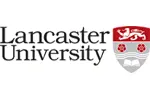Drive the future of AI with advanced statistical and machine learning expertise. With our ultra-modern curriculum, the MSc in Statistics and Artificial Intelligence will empower you to go beyond off-the-shelf AI tools. You’ll gain a deep understanding of the powerful statistical techniques underpinning modern AI, enabling you to apply and modify these models for real-world challenges.
Lancaster University’s School of Mathematical Sciences is at the forefront of mathematical AI research, which means you will learn from leaders in this field. We have recently been awarded major grants of £12 million and £9 million relating to AI and machine learning to establish the Mathematics for AI and Real-World Systems (MARS) group and lead the Probabilistic AI Hub.
Who is this programme for?
Where other AI and data science Master’s focus on computing and engineering elements, we bring a new perspective by teaching the statistical foundations behind AI models and machine learning. So, if you have a strong maths background and are interested in being at the forefront of AI technology, the MSc Statistics and Artificial Intelligence is for you.
Looking ahead to employability
The advanced level of skills and knowledge that you gain throughout the MSc will make you highly sought after by employers:
- Develop core skills in statistical theory, algorithms, and computing
- Learn how to communicate complex data insights effectively, preparing you for a successful career in data science or AI
- Gain hands-on experience with neural networks, deep learning, and state-of-the-art Bayesian inference, ensuring that you can tackle complex problems across various domains
- Through group project work you will develop your applied statistical and methodological skills
What to expect
There are three phases to your learning. You will first strengthen your core knowledge and skills in statistical methods and inference. Topics covered are frequentist and Bayesian inference, data analysis, generalised linear models, statistical computing, and communication. These topics provide the foundations on which to build an understanding of the mechanics of AI and machine learning.
In the second phase you will delve deeper, taking advanced modules in supervised and unsupervised learning, deep learning and statistical models for complex processes. As well as learning the statistical and computational ideas used to infer structure in these models, you will gain practical insight by applying them to data.
In phase three you will complete an independent research project on a topic of your choice, supervised by experts from our School of Mathematical Sciences. You might progress your understanding of a topic covered in a module, investigate a topic not covered by one of the modules, or undertake an extended data analysis.
Upon graduation, you will be equipped to lead in the development and application of AI technologies across a range of industries.
Three things we would like you to know
- We emphasise hands-on work where you put theories to the test with practical challenges and computer lab sessions
- Our maths and AI researchers are pioneering scientific advances. We develop revolutionary statistical and machine learning methods for researchers, businesses, and the public sector
- We have been successfully delivering contemporary statistics Master's programmes for over 20 years and many of our graduates are now leaders in their fields









